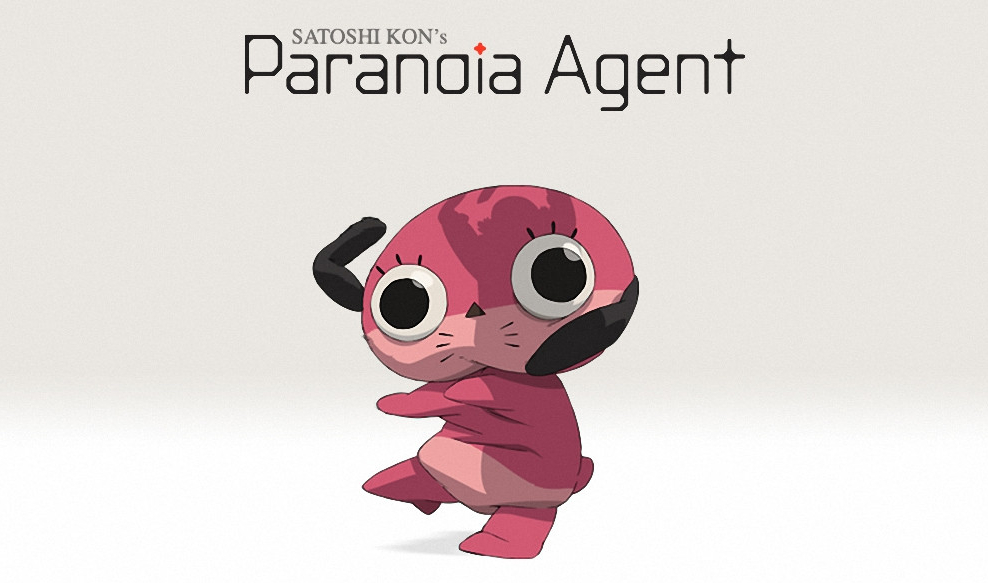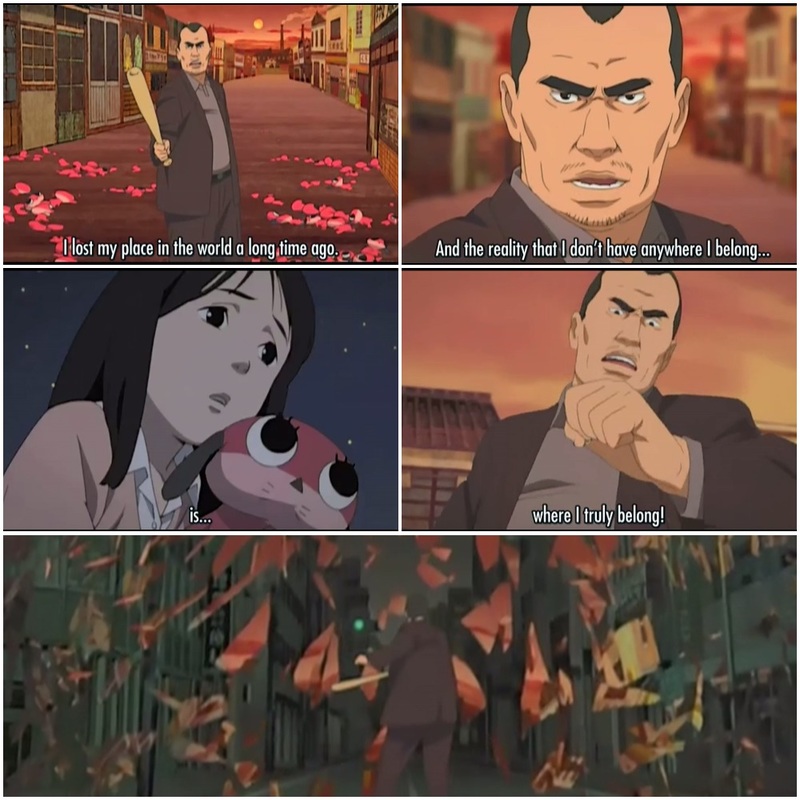|
by Luv Mehta Once upon a time, the world had one of the greatest animation directors it would ever receive. This man, Satoshi Kon, delivered unto us stories of depressing nihilism and unbridled optimism, relentless realism and frequent fantasy, dichotomies sharing screen space to tell us tales of the downtrodden, the sad, the demented, the wistful and the hopeful. And then he passed away, and the world was a slightly darker place. But during his lifetime, he would make exactly one anime series. The ultimate expression of reality and fantasy being one and the same, a series that pulled no punches when it came to its themes and characters. And as that title implies, Paranoia Agent has never been more relevant to the world than today. Let’s digress for a bit. Back in my childhood, I used to read Gotham Comics from the newsstands a lot, and the editorials were always fun and interesting. This one time, I read a Batman theory over in a medium sized grey box in the corner over in that section. What it said was somewhat strange and extremely reminiscent of Fight Club in a certain way, although I realize the latter part now. The theory was, in a nutshell, that on that fateful day in Crime Alley, Bruce had actually died along with his parents. And the collective public psyche of Gotham City was so shaken by this senseless act of violence that it instead decided to manifest his survival in their minds. In a way, Bruce Wayne is an enigma, the same as Batman. No one questions where Batman has those ridiculously expensive gadgets, because, in a way, they know. Gotham's been harder on criminals ever since, and in the collective consciousness of all its citizens, its problems have manifested in the form of metaphorical villains (like Two-Face showing the treachery of criminals, and Joker representing the chaos that evil brings), and their anger and actions against the criminal elements have taken the form of Gotham's son, enacting justice for the senseless crime of his childhood. Take the DC Universe as a whole and the theory falls flat, but it’s an interesting concept to keep in mind for what we’re about to discuss next. What is a meme? In the purest sense of the word coined by Richard Dawkins, it is "an idea, behaviour, or style that spreads from person to person within a culture". A viral idea spreading from mind to mind, psyche to psyche, infecting an entire culture at a whim. People dancing to Gangnam Style, obsessing over Beyblades and tazos one time, iPhones and planking the next. Paranoia Agent focuses on Lil Slugger or Shounen Bat, depending on whether you’ve seen the English dub or the original subbed version. Shounen Bat is a boy who attacks people with his bat - not just random people, but people who feel cornered in their own lives and are looking for an escape, an excuse to recuse themselves from their responsibilities. As he grows in popularity, he grows in size and power as well, till he turns into a serial killer of mystic abilities, being able to pop up anywhere he wants. Paranoia Agent also focuses on Maromi, a popular cute mascot reminiscent of similar real-life examples like Hello Kitty and Rilakkuma. Maromi is a cute capitalist icon, ubiquitous in all media and merchandise, and the public is obsessed with her. She’s a mascot for the people who can’t take the pressures of life and need a means of distraction and withdrawal from their humdrum clockwork existence. And while her persona’s quite different from Shounen Bat, she ultimately serves the same purpose - offer an avenue of escape. Escapism is woven into the DNA of the show, from the opening sequence of the first episode itself, seemingly unrelated to the plot, where random people all over the city keep making excuses over the phone to slip out of responsibilities, justifying themselves by concocting all sorts of tales. After a while, you have to wonder, do they know they’re making shitty pretexts, or do they actually believe in the lies they’re telling? And, indeed, if truth is subjective, what makes a lie the truth, if not excessive and misplaced belief? We live in an age where memes of all kinds proliferate and prosper. Trends, jokes, ideas, legends, myths, hysteria, all these capture the mind of the individual through his involvement with the masses, and therefore, his influence on and by the collective conscious. And as they spread, from one mind to another, they gain sentience. We live in an age where a madman running for President need only mention a possibility of American Muslims celebrating during 9/11 to make witnesses and true stories appear out of thin air. And that is exactly why Paranoia Agent remains so powerful, especially in this day and age. We, as a world, have never been more connected, and this network of individual identities forms a global collective consciousness that has proved to be incredibly potent and powerful. On a whim, we engineer the rise of stars and celebrities. We make or break movements, we choose whether to deify someone or to give them a level of notoriety they will never be able to recover from. We have the power to change the world. Imagine if we actually came together and used it for good. But Satoshi Kon, even with this depiction of the power we wield, shows how we’re thoroughly unsuited for it. We’re all little babies, desperate for some mollycoddling, running away from responsibility at the drop of a hat. We drop the cup and it shatters at our feet, and just like Naoyuki the production coordinator, we insist that it wasn’t our fault. And as Tsukiko tries to run away from her own mistakes and actions, she inadvertently passes Shounen Bat to the populace of Japan. And as the public popularizes the urban legend of Shounen Bat, they inadvertently make it so powerful. And as Japan itself recoils in terror and tries to turn to Maromi as a figure of comfort and familiarity and happiness, they foster such a level of dependency on the icon that its sudden removal plunges them into paranoia and chaos. And the ending sequence of the last sequence mirrors the opening sequence, showing us how we're doomed to repeat ourselves if we never learn from our mistakes. Yes, Paranoia Agent is bleak and critical of humanity. However it’s not unforgiving. With the character of Detective Keiichi Ikari, Kon says we have a sliver of hope. Keiichi has tried to run away from his domestic life for a long time, ashamed of not being able to live up to his wife’s perception of his own self, ashamed of how he wasn’t able to keep up with the world, and how it left him behind. This last action of his is nihilistic, yes, but why can’t nihilism be optimistic as well? Yes, we run away because the world is hard, and nothing matters, and we’ll never be as good as we want to be, and our lives will never work out the way we want it to. And what’s so wrong with that? In the end, the subject matter Paranoia Agent tackles makes it grow more timeless, year after year. Because Paranoia Agent shows us how powerful we are, and how our thoughts can change and shape the world, and it shows us how flawed we are, and why we tend to run away from our lives and use our powers for escapism. It’s a mature look at how flawed humanity can be - and it may be misanthropic at times, yes, but there may be hope for us yet.
Follow us on Facebook and Instagram to be notified whenever we release new articles.
Do you use an RSS reader? Even better!
0 Comments
Leave a Reply. |
Categories
All
Archives
December 2022
|


 RSS Feed
RSS Feed
